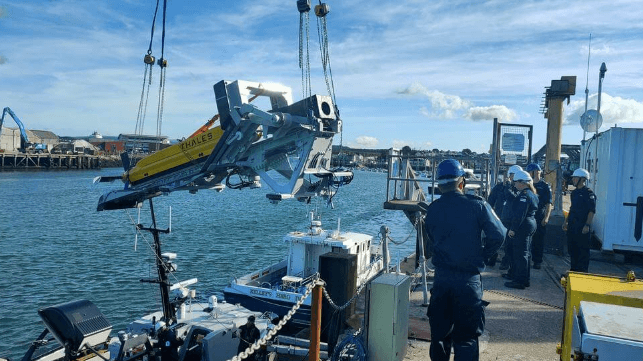Royal Navy Disbands Autonomous Testing Team

The Royal Navy has disbanded its autonomous systems testing team and folded its functions into the fleet, ending a decade of R&D effort. Going forward, the Maritime Autonomous Systems Trials Team (MASTT) and it will the Mine & Threat Exploitation Group as an operational unit.
MASTT helped to develop and mature the Royal Navy's unmanned minehunting system, starting with the Atlas ARCIMS system - one of the first autonomous systems ever delivered to a naval force - and maturing into the Maritime Mine Counter Measures (MMCM) project, built by L3 Harris and Thales. The joint French-British system entered production in 2020 and is intended as a full replacement for the UK's manned mine countermeasures vessels. It includes an unmanned surface vehicle - RNMB Apollo - and a towed sonar array, SAMDIS, along with an ROV for mine neutralization.
MASTT carried out degree three autonomy trials for Apollo in July 2024, proving that the system can navigate on its own on a pre-programmed mission - a step towards (if not yet achievement of) full autonomy. The team was scheduled to begin an integration period later in the year with the UK’s new "minehunting mother ship," RFA Stirling Castle, which has been laid up due to equipment failures and a shortage of civilian RFA crew.
“To all those who have served in MASTT, your dedication and sacrifice have left an indelible mark. You have upheld the proud traditions of the Royal Navy and brought honor to your uniform. The contributions you have made are immeasurable and they will not be forgotten," said the unit's commanding officer in a farewell address.
